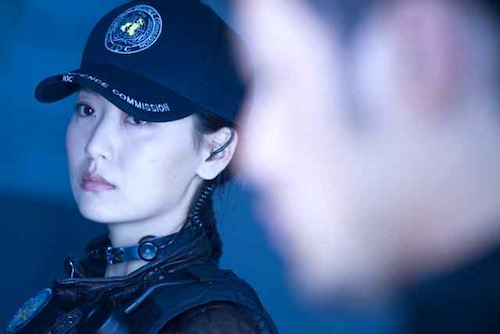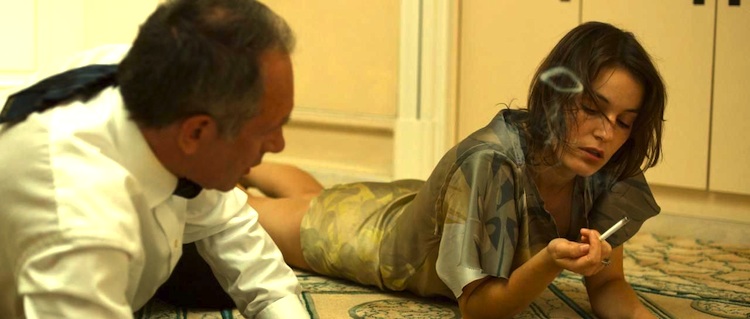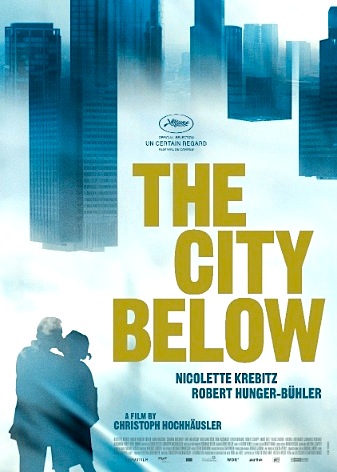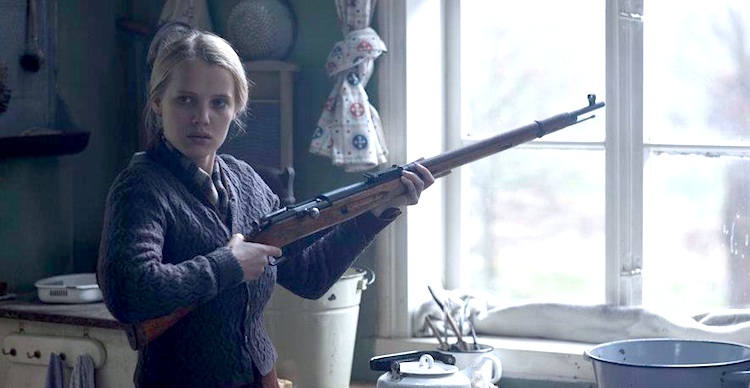 By Joe Bendel. Sure, it is more than 24 hours, but two weeks is not a lot of time for international counter-terrorism agent Jon Wan. That is about how much time he has left before the bullet lodged in his brain finishes the job. During those final days he will have to recover a killer mutant virus and reconcile some tricky family business in Dante Lam’s The Viral Factor (trailer here), which opens this Friday in New York and San Francisco.
By Joe Bendel. Sure, it is more than 24 hours, but two weeks is not a lot of time for international counter-terrorism agent Jon Wan. That is about how much time he has left before the bullet lodged in his brain finishes the job. During those final days he will have to recover a killer mutant virus and reconcile some tricky family business in Dante Lam’s The Viral Factor (trailer here), which opens this Friday in New York and San Francisco.
The spectacular opening action sequence shows exactly how Wan became a dead man walking. He is part of an ambushed convoy escorting a mercenary germ warfare scientist looking to cut a deal. It was not the rpg’s that got him, but a traitor in his ranks. Unfortunately, the doctor of death and his new smallpox strain were lost to their attackers. Tragically, Wan has several more personal scores to settle with Sean the turncoat (and exposition mouthpiece). However, a brief visit to his ailing mother sends Wan on a detour to Malaysia. It seems he has long lost father and brother there, scratching out a meager living through dubious means.
In fact, Wan Yang is a notorious thug for hire, sub-contracted by Sean’s crooked cops to kidnap Dr. Rachel Kan, a specialist working for the Asian CDC. When the gangster brother is also betrayed by the gang, the two Wans team up to recover the virus, rescue assorted friends and loved ones, and do their best to patch up a fraternal relationship interrupted by their parents’ quarrels decades ago.
Somewhat like last year’s Legend of the Fist, Viral feels a bit unbalanced, because its most ambitious action sequence comes right up front. Of course, that also means viewers do not have to wait for it. Wisely shunning shaky cams, Lam’s action scenes have a refreshing precision and clarity, despite the frequent explosions and whizzing projectiles, so viewers can appreciate the mayhem. Jay (The Green Hornet and True Legend) Chou and Nicolas (Shaolin and Bodyguards and Assassins) Tse have all kinds of action cred, but also handle the familial drama well enough, as Jon and Yang, respectively.

While marinated in testosterone and lacking a conventional romantic subplot, Viral also features two strong female characters. Though she appears all too briefly, Bai Bing shows considerable screen presence and action chops as Wan’s former fiancé and fellow agent, Ice. In a somewhat more traditional damsel-in-distress role, Lin Peng at least brings a sense of intelligence and resiliency to Dr. Kan. Young Crystal Lee is also quite poised and endearing as Yang’s responsible daughter, Champ.
Though a big budgeted production, Viral is appealingly old school, with a slick, glossy look reminiscent of Tony Scott’s glory days of high concept action pictures, via the lens of cinematographer Kenny Tse. Lam blows stuff up really nicely and both Chou and Tse certainly know how to handle a fight scene. Add in the cinematically exotic locales of Jordan and Kuala Lumpur and the attractive support of Bai and Lin and you have a solidly entertaining action film. Definitely recommended for genre fans, Viral opens this Friday (1/20) in New York at the AMC Empire and Village 7 as well as in San Francisco at the AMC Metreon and Cupertino, courtesy of China Lion Entertainment.
Posted on January 17th, 2012 at 11:45am.







